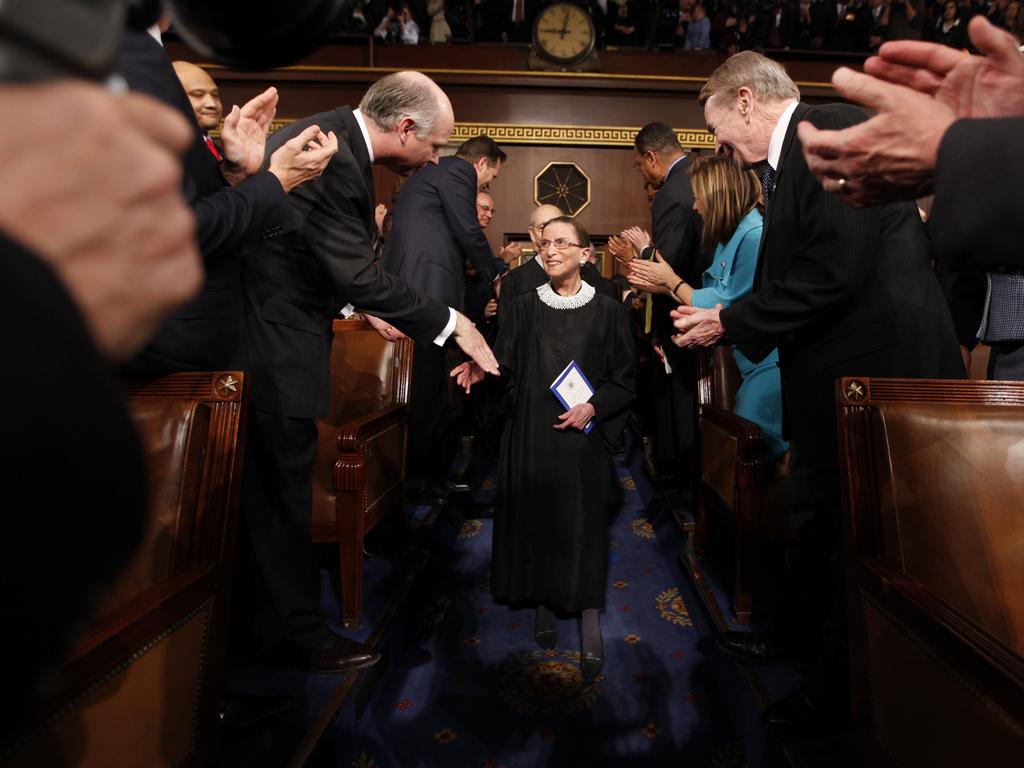Is Ruth Bader Ginsburg’s death the election game-changer that Trump has been looking for?


For the 87 year old justice to die barely six weeks before the election is an American tragedy for liberals and a historic opportunity for conservatives.
With pancreatic cancer ravaging her frail body one can only imagine how Ginsburg must have wished she could have held on until November 3, knowing what was at stake.
When she realised she would not make it to Election Day, Ginsburg told her granddaughter “My most fervent wish is that I will not be replaced until a new president is installed.”
But now that she is gone, those words means little in the cauldron of partisan politics in Washington on the eve of an election.

Donald Trump’s Republicans and Joe Biden’s Democrats are instantly at war over whether Ginsburg should be replaced before the election.
There are two key questions here. The first is whether a conservative replacement for Ginsburg will happen before the election. The second is what impact her death will have on the election campaign.
On the first question, the odds are that Trump and Senate Republicans led by Mitch McConnell will be able to push through a Senate vote on a new conservative nominee before the election in November or before the inauguration in January.
This, of course, is a deeply hypocritical position for Senate Republicans who refused to consider Barack Obama’s Supreme Court nominee in 2016 because they claimed it was too close to the election.
But principles and consistency have long been abandoned by both sides of politics in this deeply partisan, bitterly contested era.

The bottom line is that Senate Republicans have the majority power to nominate a replacement and they plan to use that power.
Their biggest obstacle is a handful of moderate Republican Senators - like Susan Collins and Lisa Murkowski - who have said previously they would not vote to install a new justice so close to an election. Democrats need four Republican Senators to cross the floor to defeat any move to confirm a new justice before the election.
My statement on the Supreme Court vacancy: pic.twitter.com/jvYyDN5gG4
— Sen. Susan Collins (@SenatorCollins) September 19, 2020
If the Senate does succeed in confirming a new conservative justice, it will be the most significant legacy of Trump’s presidency, far outweighing anything he has achieved legislatively.
It will enshrine a conservative majority in the nation’s highest court for a generation. This will see the Supreme Court be more supportive of gun rights, religious freedoms and free speech and more hostile towards abortion rights, anti-discrimination laws and immigration.
It will give the court a 6-3 conservative majority as opposed to its current 5-4 majority.
Although the court already has a conservative majority, the Chief Justice John Roberts, a conservative, has taken a pragmatic rather than ideological approach, sometimes siding with liberal judges depending on the issue.
A 6-3 conservative majority would dilute Justice Roberts’ moderating influence and make it easier to push through conservative rulings.

The second key question raised by Ginsburg’s death is whether it helps Trump or Biden more.
It will certainly fire up both the Republican and the Democrat base but on balance it is more likely to help Trump than Biden.
The Democrats will be full of fury at Trump and the Republicans for trying to push through a conservative appointment before the election given that the Republican’s blocked Obama’s pick before the 2016 election.
Ginsburg’s death is also more likely to encourage Democrats to vote to install a Biden presidency which will prevent any further lurch to the right by the court if another justice dies or retires.
But Trump stands to win the most because of Ginburg’s death.
It allows Trump to divert attention from the coronavirus pandemic and the depressed economy and instead highlight the benefits of a strongly conservative-majority Supreme Court.
This means Trump can point to the favourable long-term trends this will mean for his conservative support base on issues like abortion, guns and personal freedoms.
These Supreme Court issues drive support for Trump across America’s heartland to a far greater degree than most Australians realise.
Ginsburg’s death will allow Trump to shine a light on these issues over the next six weeks and to claim victory for his promise to appoint conservatives to the nation’s highest court.
Will this be the game-changer that Trump has been looking for?
(Cameron Stewart is also US Contributor for Sky News Australia)






Ruth Bader Ginsburg’s extraordinary life of achievement transcended politics, but sadly her death is all about politics.